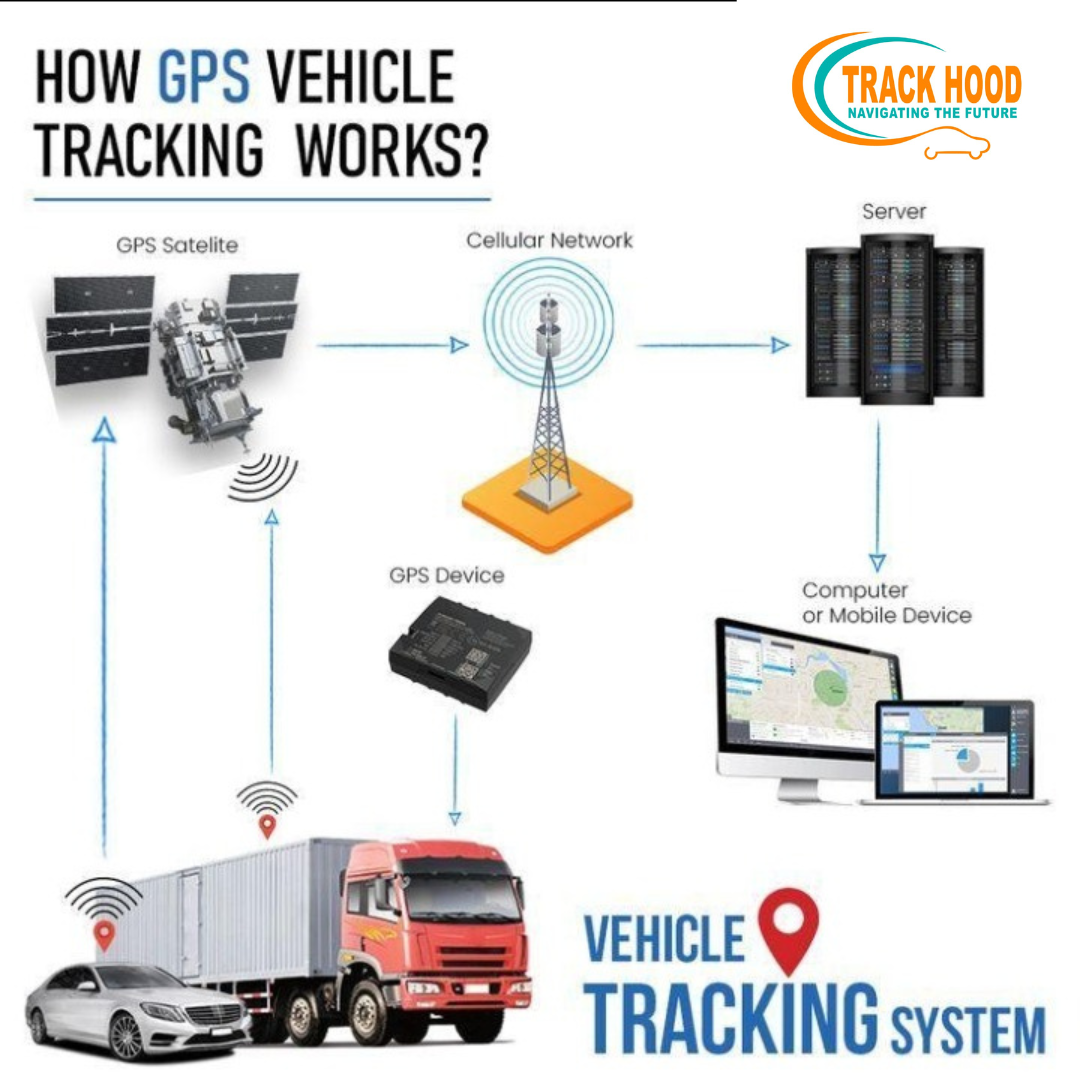INTRODUCTION TO GPS TRACKING GPS
Tracking refers to a Global Positioning System. It entails a network of 24 satellites in orbit and devices on the ground that can establish a person or object’s location on Earth with astonishing precision. GPS Tracking tracks three separate data sets: positioning, navigation, and timing.
GPS satellites carry atomic clocks that provide extremely accurate time. The time information is placed in the codes broadcast by the satellite so that a receiver can continuously determine the time the signal was broadcast. Thus, the receiver uses four satellites to compute latitude, longitude, altitude, and time. Car tracking systems, also known as vehicle tracking systems, offer
numerous benefits for both individuals and businesses. Here are some of the key advantages of car tracking:

- Vehicle Security: Car tracking systems enhance vehicle security by providing real-time location updates. In the event of theft, the tracking system can help authorities locate and recover the stolen vehicle quickly.
- Theft Prevention: The presence of a visible car tracking system acts as a deterrent to potential thieves, as they know that the Vehicle can be easily tracked and recovered. This helps prevent vehicle thefts and reduces the associated risks and costs.
- Fleet Management: For businesses that operate a fleet of vehicles, car tracking systems are invaluable for efficient fleet management. Fleet managers can monitor the location and status of each vehicle in real-time, optimize routes, and make informed
decisions regarding dispatching and scheduling. - Route Optimization: Car tracking systems can analyze and optimize routes, helping drivers navigate more efficiently and reduce fuel consumption. By avoiding congested areas, excessive idling, and unnecessary detours, businesses can save time and money while increasing productivity.
- Maintenance and Servicing: Car tracking systems often provide insights into vehicle diagnostics, including mileage, engine performance, and maintenance schedules. This enables businesses to proactively schedule maintenance, reducing the risk of breakdowns, optimizing vehicle lifespan, and avoiding costly repairs.
- Driver Monitoring and Safety: Car tracking systems can track driver behavior, such as speed, harsh braking, and aggressive acceleration. This data can be used to monitor driver performance, identify risky behaviors, and provide feedback for training purposes. Improved driver behavior leads to enhanced road safety and reduced accidents.
- Insurance Benefits: Some insurance companies offer discounts on premiums for vehicles equipped with car tracking systems. The presence of a tracking device can reduce the risk of theft and increase the chances of recovering stolen vehicles, making them less of an insurance liability.
- Emergency Response: In case of an accident or emergency, car tracking systems enable swift response and rescue operations. The system can transmit the vehicle’s location and alert emergency services, facilitating timely assistance and potentially saving lives Stolen Vehicle
- Recovery: If a vehicle is stolen, a car tracking system significantly increases the likelihood of recovery. Law enforcement authorities can use the tracking data to locate the stolen vehicle quickly and apprehend the culprits, minimizing losses for both individuals and businesses.
- Peace of Mind: Car tracking systems offer peace of mind to vehicle owners and fleet managers, knowing that their vehicles are being monitored and protected. The ability to track and manage vehicles in real-time provides a sense of control and security, particularly
in high risk areas or situations.
It’s important to note that the benefits of car tracking systems may vary depending on the specific features and capabilities of the system, as well as
the individual needs and requirements of the users
